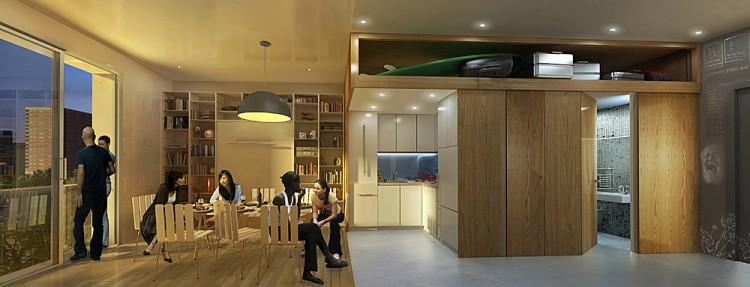New York City’s First Micro-Apartments Designed
NYC Mayor Michael Bloomberg announced the winner of the micro-apartment design competition Tuesday. NYC seeks alternative housing development proposals as singles and couples continue to make up most of the city’s demographic.

Mayor Michael Bloomberg announces the winner of the micro-apartment design competition. Residents are expected to be able to move into the first New York micro-apartments in 2015. Deborah Yun/The Epoch Times
|Updated:





